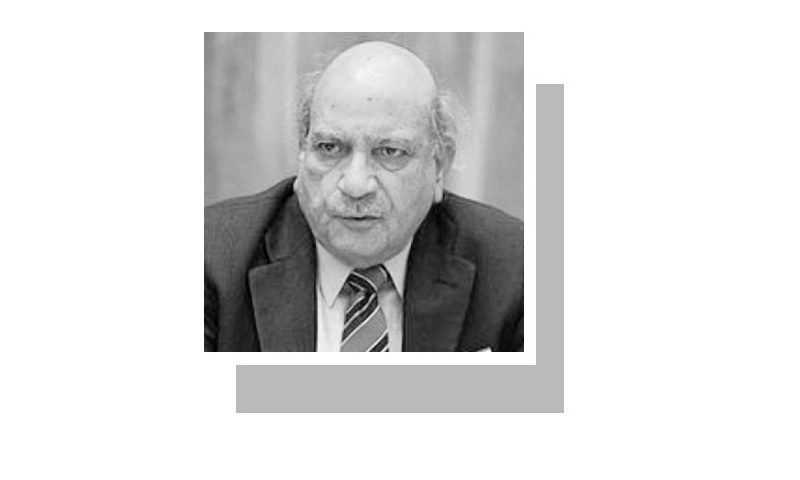
THE celebration of the 150th anniversary of the Lahore High Court offered a good opportunity for discussions on ways to strengthen the judicial system so that it could better guarantee justice to all citizens regardless of their belief, gender or social status. But serious efforts are needed before reform ideas can yield the desired results.
Much to be welcomed was the statement by the Lahore High Court chief justice that the purpose of the celebration was “to make the people aware that the judiciary is active to protect their rights and that positive reforms are being introduced in the system”.
The court did well to pay homage to the judges who are known for their legal acumen, integrity, devotion to duty and regard for public good. It should now be possible to identify the cases of which the judges should be proud and also the verdicts that need not be followed.
On the final day of the celebration, considerable food for thought was provided by the chief justice of Pakistan when he declared that the courts were influenced neither by the wishes of any individuals/ groups nor by media hype and that all courts, from the Supreme Court to magistrates’ courts, were functioning without influence from any quarter.
Perhaps the biggest threat to the judiciary’s independence comes from the religious orthodoxy.
Chief Justice Anwar Jamali perhaps got carried away by the spirit of the occasion to claim for the subordinate judiciary the degree of independence that is usually the superior courts’ cherished mark of distinction. The rot in the lower courts is widely known and has often been recognised by the apex court. Corruption opens the way for all kinds of influences that can interfere with the dispensation of justice.
As regards the superior judiciary too, freedom from all pressures is a widely shared wish that some feel has yet to be translated into reality.
No elected civilian government could have been in Justice Jamali’s mind when he referred to undesirable influences, because except for the harm done to the judiciary by collusion between justice Muhammad Munir and governor-general Ghulam Muhammad in 1954-1955, or the first PPP government’s bid to control the judiciary, no political authority has been able to do to the judiciary even a fraction of what it suffered at the hands of military rulers or through its partnership with them.
No historian will be able to gloss over Ayub Khan’s assumption of power to nominate superior courts’ judges, and the diabolical designs of Ziaul Haq, of promulgating a provisional constitution order and sacking judges by simply not inviting them to take a new oath, a method used by Pervez Musharraf with much greater insolence until he brought the edifice down on himself by his excessive reliance on it.
Nor was any civilian government able to get from the judiciary a verdict such as we had in the case of Tamizuddin, or Nusrat Bhutto, or Achakzai or Zafar Ali Shah. Finally, after the judiciary rewrote the scheme of judges’ appointment advanced in the 18th Amendment and extinguished the executive’s and legislative’s say in the matter, the politicians are in no position to put any undue pressure on the superior courts.
There are pressures on the justice system that cannot be attributed to politicians. Perhaps the biggest threat to the judiciary’s independence comes from the religious orthodoxy. The plight of all those who are accused of blasphemy is no secret. They cannot find lawyers to defend them; the fees demanded by lawyers who might agree to accept their briefs are beyond their means. The courts hearing their cases are nearly always besieged by mobs who threaten judges and lawyers both. The apex court is yet to take action to ensure that the courts can repel such ugly pressures on them.
The superior judiciary also needs to find ways of standing up to the pressure from the authors of security doctrines. That is necessary to make enforced disappearances a part of history and relieve the people held at internment centres of indescribable misery. It is impossible to reconcile the ideal of an independent judiciary with the existence of military courts or laws that make a mockery of due process.
Further, the judiciary is required to demonstrate its freedom from religious, gender and class biases. The only suo motu action in defence of the rights of non-Muslim citizens, the Supreme Court verdict of June 2014, remains largely unimplemented. The highest court must ensure practical acceptance of its recommendations, including the creation of a minority rights commission. Indifference to the rights of the peasants and labour is the only explanation for keeping the petition on land reform pending in the Supreme Court for years. And how does one explain the fact that the toughest sentences, imprisonment for up to 90 years, have been awarded only to trade union leaders?
If independence of the judiciary is not to be limited to the autonomy of judges and their ability to defend their group interests, reforms are needed to deepen the rule of fair laws and ensure greater respect for human rights. Two areas for priority action can be pointed out straightaway.
Access to justice is a serious issue for the poor, especially for women and members of minority communities. The people expect the judiciary to goad the government, the bar councils and associations into setting up inexpensive legal aid services. Secondly, the Law and Justice Commission needs to be turned into a dynamic agent of change. The issue of delay in action on its recommendations must be expeditiously resolved. It is not fair to reserve chairmanship of the commission for the chief justice of the Supreme Court for his task is to interpret the law and not to make it.
Published in Dawn December 15th, 2016












































